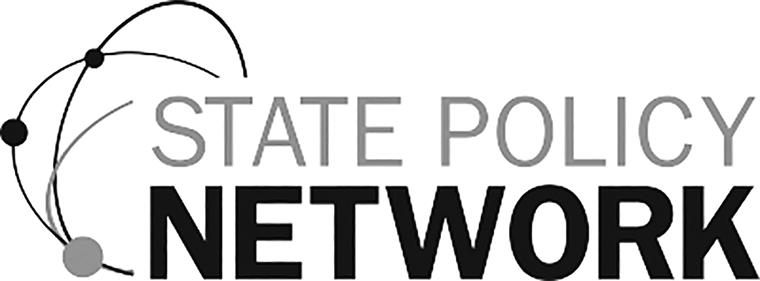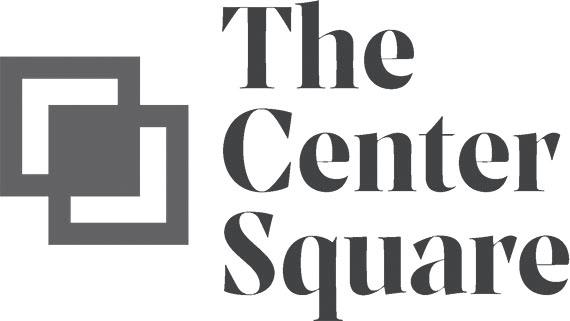
4 minute read
New book exposes how government unions threaten to topple democracy
By DAVID FREDDOSO Excerpted from the WASHINGTON EXAMINER Feb. 16, 2023
Only10 percent of workers are now union members, according to the new Labor Department report on union membership, released in late January. And private sector unions, which peaked at 35 percent in 1954, now include just 6 percent of all workers as members.
Advertisement
Yet the story is quite different for unions in the public sector. The unionization rate of public employees remains robust, at more than 33 percent of all government workers nationwide.
Local government workers are the most likely to be unionized, at a rate of nearly 39 percent, and public-sector union members are concentrated in states that mandate collective bargaining.
The states with higher rates of unionization seem to correlate with the nation’s least functional state governments: California (54.5 percent), Illinois (48.7 percent), New York (66.7 percent) and New Jersey (59.3 percent) among them.
As their private-sector cousins starve, public employee unions are fat and happy — a strange development, given that there was no public-sector collective bargaining at all 70 years ago, when unions were at their apex.
Public-employee unions are as relevant and formidable as ever, thanks to the unique political power and influence they wield.
For starters, public-employee union members can be relied upon, and are relied upon by Democrats in many states, to come out in force to support higher taxes and more government spending, to oppose anything that threatens their meal ticket.
Even beyond their ability to project force through protests and voter mobilization efforts, public-sector unions enjoy immense and undue influence over government decisions, often to the detriment of voters and taxpayers.
To give one recent example, at the height of the coronavirus pandemic, public sector unions literally dictated the Biden administration’s public health policies, as internal emails from the Centers for Disease Control and Prevention later revealed.
“Unlike trade union negotiations, public employee unions have little downside risk with excessive collective bargaining demands,” wrote Philip Howard in his new book, Not Accountable: Rethinking the Constitutionality of Public Employee Unions. “No matter how much unions take from taxpayers and the public good, government can’t go out of business.”
The collective bargaining process not only lacks constraints upon what unions can demand, but it also damages democracy itself. It effectively cuts elected officials out of the loop on critical policy questions.
Instead of voters and their representatives making decisions about spending priorities through elections and then votes in the appropriate legislatures, the process we were all led to believe is the American system, those decisions end up being made in closed negotiating rooms, behind whose doors union representatives swap promises with friendly politicians or unelected arbitrators unilaterally settle issues between the unions and unfriendly politicians.
Howard argues persuasively that “(T)he abuse of public power by public employee unions is the main story of public failure in America … It is not possible to bring purpose and hope back to political discourse until, as a threshold condition, elected leaders regain the authority to run public operations.”
Not only are public-employee unions a nuisance to the taxpayer and a drag on government effectiveness, but they also comprise an unconstitutional fourth branch of government.
“Government cannot delegate to private parties essential governing choices,” Howard said, yet that’s exactly what happens when negotiators or arbitrators make policy disguised within collective bargaining agreements.
“More federal employees die on the job than are terminated for poor performance,” Howard said.
Howard believes it is obvious public-sector unions form an illegal locus of power that has placed itself outside the reach of the elected legislatures and executives. As long as “no decision is too small to be vetoed by a union entitlement,” unions are effectively frustrating the institutions of democracy itself.
This, in turn, is making citizens “justifiably cynical and distrustful because modern government is organized to fail.”
But if collective bargaining agreements are putting the unions outside the reach of democratic accountability, how can this problem be fixed democratically? Howard believes the Constitution and Supreme Court jurisprudence provide a means to untangle the mess into which the public employee unions have made of governing.
And the Supreme Court’s decision in Janus v. AFSCME, Howard explained, was “a major turning point” because Janus embraced the idea that the very act of collective bargaining by a public employee union is inherently political.
“Most of Janus,” he said, “is about how public unions have rendered government inoperable.”
David Freddoso is the Washington Examiner’s online opinion editor.
March 10, 2023
Oregon judge deals state early loss in dues deductions case
“ ‘This is a perfect example of why the state shouldn’t be in the dues-collection business,’ said Freedom Foundation attorney Rebekah Millard. ‘It doesn’t matter whether the state is acting out of incompetence or fealty to the union. What matters is that it wouldn’t happen at all if the union was taking responsibility for its own accounting procedures, like every other independent service provider.’ ”
ON
March 10, 2023
Florida Republicans introduce bills prohibiting paycheck deductions for public-sector union
“Freedom Foundation representative Rusty Brown said, “There’s nothing in this bill that curtails organizing or collective bargaining for wages, benefits, or working conditions, which is what a union should be doing. (This bill) gives the employees represented by the union the opportunity to vote … if they would like to continue allowing that union to represent them.” ”
Feb. 9, 2023
Is Ohio red, purple or beholden to unions and special-interest groups?

“But late last month, the non-profit Freedom Foundation, whose “sole mission,” notes CEO Aaron Withe, is “fighting government unions” and helping workers understand their rights in relation to those unions, uncovered a different potential explanation for state Republicans’ hesitancy to embrace core conservative values.”









